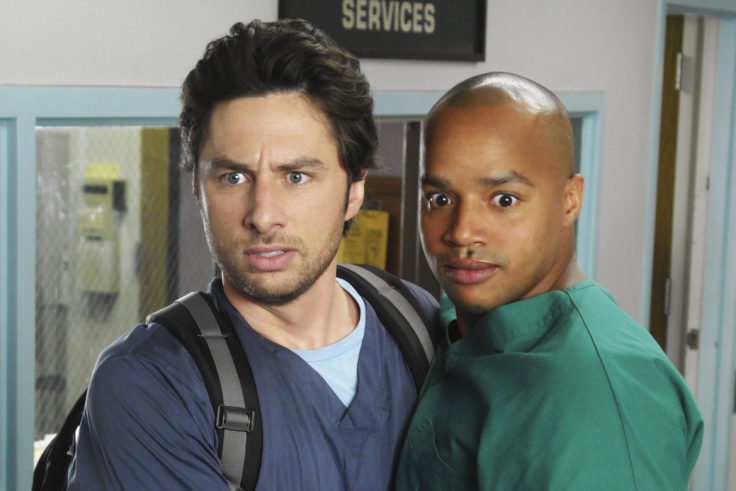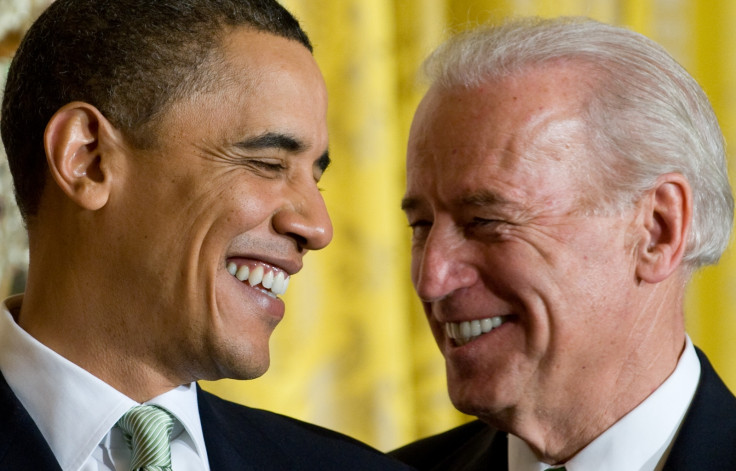Rise of the bromance: How declining homophobia helped straight men embrace each other
Close friendships can be a lifeline for young men, and they're thriving in more accepting societies.

"Man up", "Be a man", "Grow a pair". For men, these are all phrases that we hear day in, day out. For most of our lifetimes, masculinity has been defined by our ability to remain tough, strong and emotionally distant. Unfortunately, and unknowingly, this masculine pride has impaired our ability to have close and meaningful friendships.
In 2017, however, young men are showing us that masculinity can be done in a very different way.
For the past decade, the term ''bromance'' has been popularised among the mainstream media. It used to account for the more affectionate friendships between men on the silver screen and in celebrity culture.
As the expression would suggest, we have come to understand these friendships as a cross between romantic and brotherly bonds. You only have to look at movies and TV shows such as Scrubs, 21 Jump Street and I Love You, Man, to see these bromances in action. Oh, and every Seth Rogan movie ever made.
Rise of the bromance
So, do bromances exist in real life? What do they look like? And why should we care? To investigate this, my colleagues and I asked 30 men at a British university these types of questions, publishing a study on the findings in the journal Sex Roles.

The participants defined a bromance as the closest and most intimate type of friendship between men, where the two men are emotionally invested in each other's wellbeing. This is shown through the in depth conversations they have about health concerns, family breakdowns and body image anxieties. The men in the study said that in a bromance "you don't need to keep up a figure of masculinity" and "it feels like there are no boundaries between us and what we can say".
The men also spoke about the love they felt for one another. "When you have a bromance with a friend, it's motivated by your interest in that person, love and friendship."
The men, who were all studying sport-related degrees, shared an understanding that love can exist between two people without the need or requirement for sex. Many said the only difference between a romance and bromance was sexual desire.
"I feel free to tell him I love him, because I do. There is no attraction, but also no embarrassment," one of the students said.
Finally, the men were clear that physical intimacy was also common in bromances, and same-sex kissing and cuddling symbolised the closeness and confidence of their friendship.

Why are bromances on the rise now?
The level of intimacy expressed between men depends on cultural attitudes towards homosexuality. Simply put, the more homophobic a society is, the more distant, stoic and aggressive men become.
In recent times, many scholars have said that the 1980s and early 1990s were the most homophobic era for a century. This was the time when the Aids epidemic took hold and fuelled intolerance and panic about homosexuality. As a consequence, homophobia became a benchmark for masculinity.
In order to appear heterosexual, almost all men, gay and straight, performed extreme caricatures of heterosexuality. They rejected femininity, lifted weights and kept their distance from one another.
For men's friendships, this meant that self-disclosure and emotional openness – vital components for one's emotional well-being – was completely lacking. Young men in particular lost their freedom to express fear, weakness or their affection for one another.
Luckily, times have changed. The recent passing of same-sex marriage legislation in various countries is evidence that social attitudes have improved, as homosexuality is now widely recognised, understood and accepted as a legitimate sexuality.
This improving attitude has allowed 21st century masculinity to become much more complex, emotional and caring; as shown through the bromance. Young men now act out their masculinity without the restrictions that their fathers would have experienced.

Bromances for mental health
Traditional masculinity and emotionally illiteracy are key risk factors for suicide, according to the Samaritans, among other organisations that provide emotional support services for men. Basically, men who cannot open up about their emotions are more likely to suffer from depression, social anxiety and suicidal thoughts.
In 2017, sadly, men are three times more likely to commit suicide than women in the UK. This is worse for men of older generations who are more likely to adopt ''manly'' stereotypes that repress emotion.
Young men's bromances however, show promise for changing this. Bromances can offer a coping strategy for young men dealing with self-confidence issues and depression. It comes as no surprise that men raised in the 1980s have the highest rates of suicide, and young men today have the lowest rates.
Our research team at the University of Winchester believe that bromances contribute to a lower risk of young men feeling depressed and suicidal, and an increased likelihood of seeking emotional help from friends.
So next time you tell a friend to ''man up'' or ''be a man'', think. Are you being a good friend to that person? There are some lessons to be learnt from the young men of today.
Stefan Robinson is a researcher at the University of Winchester in the UK.
© Copyright IBTimes 2024. All rights reserved.








